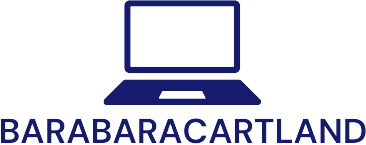Table of Contents
ToggleIn a world that’s more connected than ever, speaking just one language feels a bit like trying to fit a giraffe into a Mini Cooper. Foreign language learning opens up a treasure chest of opportunities, from making new friends to landing that dream job. Imagine ordering a croissant in Paris without pointing and mimicking a chicken.
Learning a new language isn’t just about memorizing vocabulary; it’s about diving into a culture, understanding its quirks, and maybe even impressing your friends with your newfound ability to curse in five different languages. So why not take the plunge? Whether you’re looking to impress at your next dinner party or simply want to binge-watch foreign films without subtitles, mastering a new language could be your ticket to a world of fun and adventure.
The Importance Of Foreign Language Learning
Learning a foreign language offers numerous cognitive benefits. Research indicates that bilingual individuals often display improved problem-solving skills and enhanced creativity. Exposure to different languages stimulates brain functions, making connections between vocabulary and context.
Cultural appreciation is another significant aspect. Engaging with a new language allows individuals to experience the rich traditions and customs of different communities. Understanding these cultural nuances fosters empathy and respect for diverse perspectives.
Career advancement presents another compelling reason to learn a foreign language. In an increasingly globalized job market, employers value candidates with language skills. Proficiency in a foreign language can provide a competitive edge, opening doors to international opportunities and enhancing professional networks.
Social interactions benefit significantly from foreign language learning. Communication in another language nurtures relationships with speakers of that language. Developing these connections can lead to meaningful friendships and collaborations across cultures.
Enjoying foreign media adds a layer of enrichment to personal experiences. Watching films, listening to music, or reading books in their original language enhances enjoyment and comprehension. Engaging with media in its native form offers insights that translations sometimes miss.
Finally, learning a foreign language promotes lifelong learning. The challenge encourages individuals to continue growing intellectually and emotionally. This journey cultivates resilience, adaptability, and a love for learning that lasts a lifetime.
Benefits Of Learning A Foreign Language

Learning a foreign language offers numerous advantages that extend beyond mere communication. The cognitive, cultural, and career-related benefits significantly enrich personal and professional life.
Cognitive Advantages
Bilingual individuals often display enhanced problem-solving skills. Learning languages engages different parts of the brain, boosting overall cognitive function. Memory retains more information, which aids in various academic and personal tasks. Enhanced creativity frequently accompanies language skills, allowing individuals to think outside the box. Research shows that language learning delays the onset of cognitive decline in older adults, promoting long-lasting mental agility. Improved multitasking ability illustrates how managing multiple languages sharpens focus and quick thinking.
Cultural Understanding
Understanding another language fosters deep cultural insights. Exposure to various traditions and customs creates genuine appreciation for diversity. Engaging with a culture through its language bridges gaps and builds connections with its people. Identifying idiomatic expressions reveals unique cultural nuances. Participating in local traditions enriches experiences abroad, ultimately promoting empathy and compassion. Personal growth stems from these cross-cultural interactions, paving the way for meaningful conversations and relationships.
Career Opportunities
Language proficiency greatly enhances job prospects. Many employers prioritize bilingual candidates in today’s globalized market. Industries such as tourism, education, and healthcare actively seek individuals with language skills. Increased employability stems from the ability to communicate with diverse clients and colleagues. Networking opportunities expand as language skills open doors to international markets. Competitive edges develop with language expertise, making candidates more appealing to potential employers.
Methods Of Foreign Language Learning
Learning a foreign language involves various methods. Each approach offers unique strengths, catering to different learning styles and preferences.
Traditional Classroom Learning
Traditional classroom settings remain a popular choice for many learners. Structured lessons provide systematic exposure to vocabulary, grammar, and pronunciation. Experienced instructors guide students through exercises and offer immediate feedback. Peer interaction fosters collaboration and enhances speaking skills. This method often promotes discipline and a consistent study schedule.
Online Courses And Resources
Online courses and resources revolutionize language learning accessibility. Flexible scheduling allows learners to study at their own pace. Platforms like Duolingo and Rosetta Stone offer interactive lessons and gamified experiences. Additionally, learners can engage in web-based forums and language exchange communities. These resources provide a wide array of materials, from video lessons to podcasts, enhancing the learning experience.
Immersive Learning Experiences
Immersive learning experiences facilitate practical language use in real-life contexts. Traveling to a country where the target language is spoken yields immediate cultural and linguistic immersion. Engaging with locals encourages authentic conversations and reinforces vocabulary through daily interactions. Furthermore, studying abroad can deepen cultural understanding and foster lasting connections. Such experiences significantly strengthen language retention.
Challenges In Foreign Language Learning
Language learning poses several challenges that learners must navigate to achieve fluency. Understanding these obstacles helps in overcoming them effectively.
Motivation And Consistency
Maintaining motivation throughout the learning journey proves critical. Learners may initially feel excited, but sustaining that momentum requires consistent practice. Regular study sessions, often varying in length, keep skills fresh and gradually enhance proficiency. Setting specific goals, such as mastering key vocabulary or engaging in conversations, fosters accountability. Regularly tracking progress provides a sense of accomplishment, boosting motivation to continue. Engaging with language communities or study groups also encourages consistent practice. Building a routine helps establish learning habits that benefit retention and fluency.
Language Barriers And Frustration
Language barriers often lead to frustration during the learning process. Communication becomes challenging, especially in real-life interactions. Misunderstandings and errors create feelings of self-doubt. Practicing with native speakers can heighten discomfort but fosters authentic connections that prove beneficial. Encountering unfamiliar grammar rules and vocabulary creates additional hurdles. Patience and persistence become essential at this stage. Gradually, learners develop confidence as they gain exposure to different contexts and usages. Seeking constructive feedback from instructors or peers helps navigate these challenges as well. Embracing mistakes as part of the learning process enables progress toward fluency.
Embracing foreign language learning is a rewarding journey that opens doors to new cultures and experiences. It not only enhances cognitive abilities but also fosters empathy and appreciation for diversity. The skills gained from mastering a new language can significantly impact personal and professional growth.
As individuals navigate their language learning paths, staying motivated and consistent is crucial. With various methods available, from traditional classrooms to immersive experiences, there’s a learning style for everyone.
Ultimately, the effort invested in learning a foreign language pays off, enriching lives and expanding horizons in an increasingly interconnected world.




